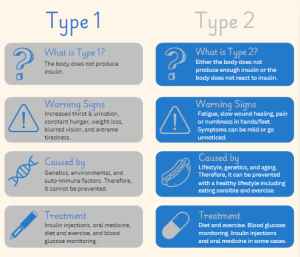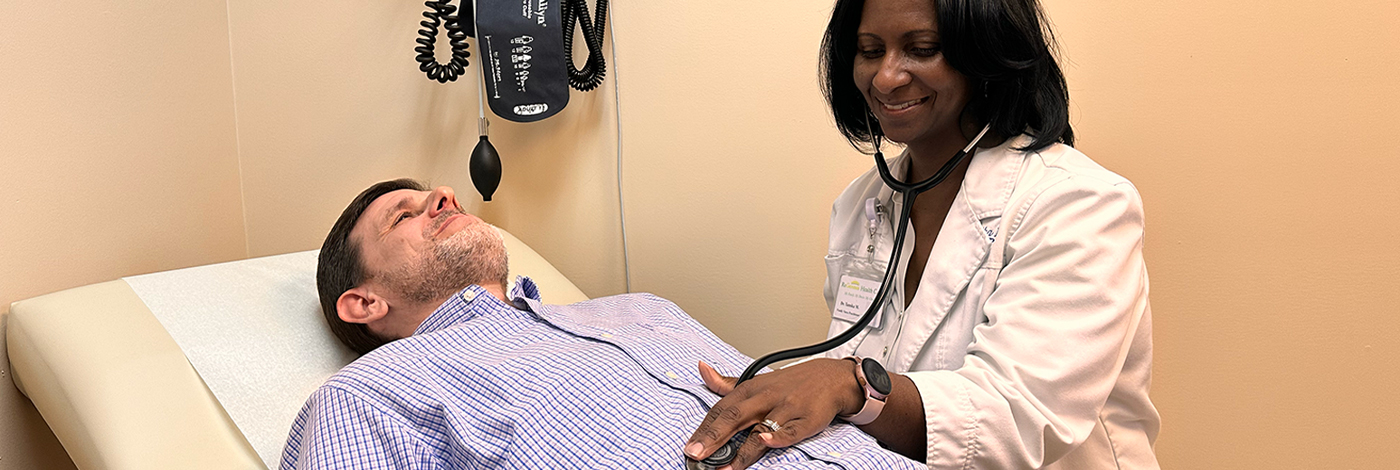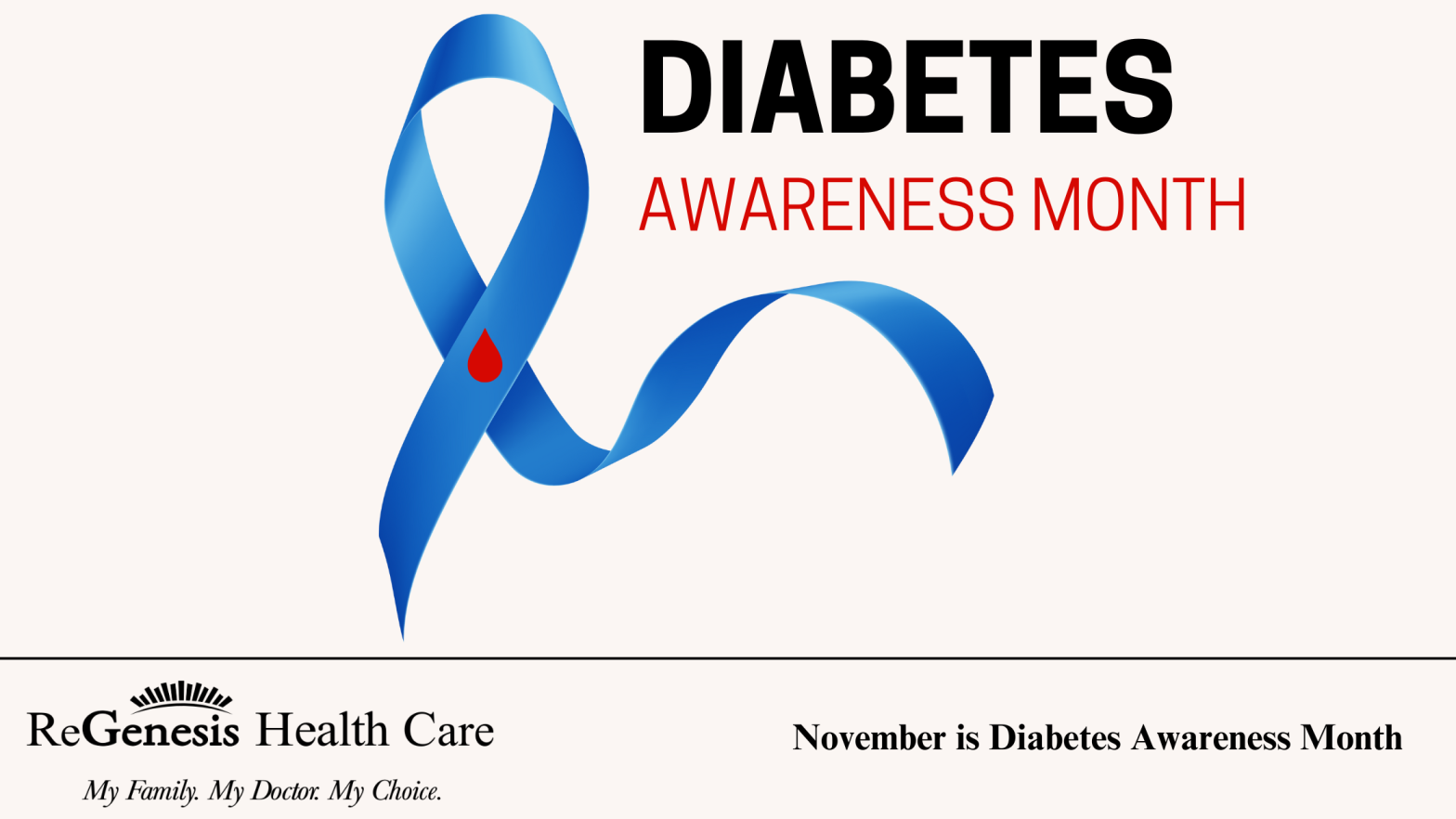November 4th, 2024
November is Diabetes Awareness Month, a time dedicated to raising awareness about the condition and its impact on millions of lives. Diabetes is a chronic condition that occurs when the body cannot properly regulate blood sugar (glucose) levels, either due to insufficient insulin production (Type 1 diabetes) or insulin resistance (Type 2 diabetes). If left unmanaged, diabetes can lead to serious health complications, including heart disease, kidney damage, and nerve issues.
This November, we focus on changing the dialogue around diabetes by debunking popular myths and updating our vocabulary to properly reflect the issue.
The Difference Between Type 1 & Type 2 Diabetes

Myth or Fact: Diabetes Edition
Myth: Diabetes only affects overweight individuals.
Fact: Diabetes can develop in people of all body types, including those who are of normal weight. Factors like genetics, age, and lifestyle play significant roles in the risk of developing the condition.
Myth: People who live with diabetes can’t eat sugar.
Fact: While it’s important for those with diabetes to manage their carbohydrate intake, they can still enjoy sweets in moderation as part of a balanced diet. The key is to monitor blood sugar levels and make informed dietary choices.
Myth: Insulin is a cure for diabetes.
Fact: Insulin is a treatment that helps manage blood sugar levels but does not cure the disease. People with diabetes may need insulin to help control their condition, but they still need to follow a comprehensive management plan that includes diet, exercise, and regular monitoring.
Myth: Only adults can develop Type 2 diabetes.
Fact: Type 2 diabetes can also occur in children and adolescents, particularly due to rising rates of obesity and sedentary lifestyles. Early detection and lifestyle changes are crucial for managing the condition at any age.
Myth: People who live with diabetes can’t engage in physical activity.
Fact: Exercise is highly beneficial for managing diabetes, as it helps improve insulin sensitivity and control blood sugar levels. Most individuals with diabetes can safely participate in physical activities, often with some adjustments and guidance from their healthcare providers.
Changing Our Vocabulary
Incorrectly using the vocabulary that surrounds diabetes can perpetuate misunderstandings and stereotypes, leading to stigma around the condition. Precise language is essential for effective communication between patients and healthcare providers, ensuring that people receive appropriate care and support for their specific needs.
Below are some of the most frequent mistakes people make when talking about diabetes.
- People do not suffer from but live with diabetes.
- There are two main types of diabetes.
- Diabetes is not the patient’s fault. Researchers have yet to discover why Type 1 Diabetes occurs and while Type 2 can be linked to lifestyle, there are random and genetic elements that cannot be fully explained.
- People who live with diabetes do not measure insulin but their blood glucose.
- A hyper (hyperglycemia) – high blood glucose – does not kill a person as fast as they do in the movies.
- A hypo (hypoglycemia) – low blood glucose – will land a person in an awkward but manageable situation. Someone experiencing hypoglycemia may require your help.
- Insulin does not help when a person is “hypo;” rather, this situation alls for fast acting sugar.
- There is no such thing a special “diabetic diet.” Diabetics can eat the same foods and would do well to follow a healthy, balanced diet. Just like anyone else!
- People who live with diabetes are not weak.
Are you living with diabetes and in need of a primary care doctor? Give us a call at (864) 582-2411!



